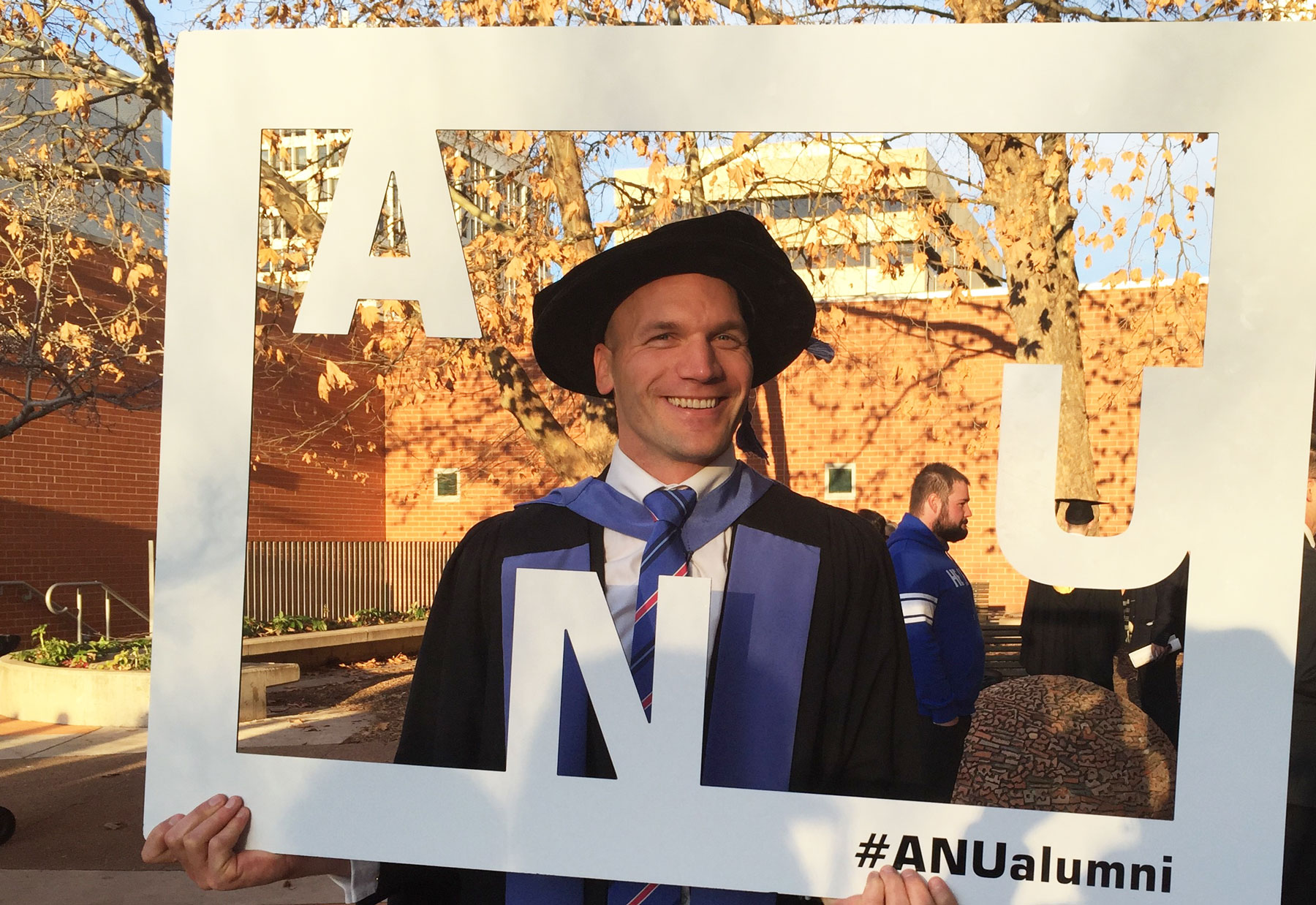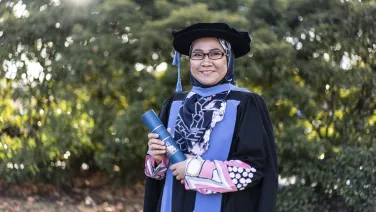Understand the issues to change the system
Dr Walter Reinhardt’s PhD at ANU helped him to see that an expertise in systems and sectors is critical when it comes to climate change adaptation. Now he is applying the expertise developed during his studies at ANU.
Dr Reinhardt, who graduated with a PhD from ANU in July, is passionate about sustainable resource management. It’s because, he says, the stakes are so high.
“We need to get serious about sustainable resource management, it's not an issue we can pretend doesn't exist.”
For Dr Reinhardt, who is now working as an Environmental Consultant at professional services firm Arup, “getting serious” doesn’t mean just having shorter showers, but seeking fundamental change in our social, economic and environmental systems.
The three levels of government responsible for energy and water use in Australia, are, he says, responsible for policies which are mostly “ineffectual and feel-good.”“Australia is not a leader in this area at all,” he says.
Dr Reinhardt’s advice is that to make any meaningful changes in climate change adaptation, Australia needs to think more deeply about the underlying policy issues.
“When you understand the system, the capacity to change is profound,” Dr Reinhardt explains.
“And the research that gets undertaken at ANU is profound because it seeks to understand the deeper issues that cut across current and future policy and business problems.”
For Dr Reinhardt, the Fenner School of Environment & Society was the perfect fit for this type of interdisciplinary research and by far his favourite experience at ANU.
“The colleagues, supervisors and students are great. There's a real interest and earnestness in the intellectual inquiry that is contagious.”
Dr Reinhardt says that studying households is important because household water use makes up about 60 to 80 per cent of urban water use, and it's about the same for electrical energy.
“My research at ANU involved policy analysis, as well as industry and household surveys, which I used to build an evidence base for discussion of change in energy and water systems,” Dr Reinhardt explains.
“I didn't go looking at households because I had an agenda that their use could be better managed.
“I looked at them because if we are to change water and energy systems then households have to be part of that change. If households have to change then the conclusion of my research is that they can't do it off their own bat: a concerted policy effort is needed.”


